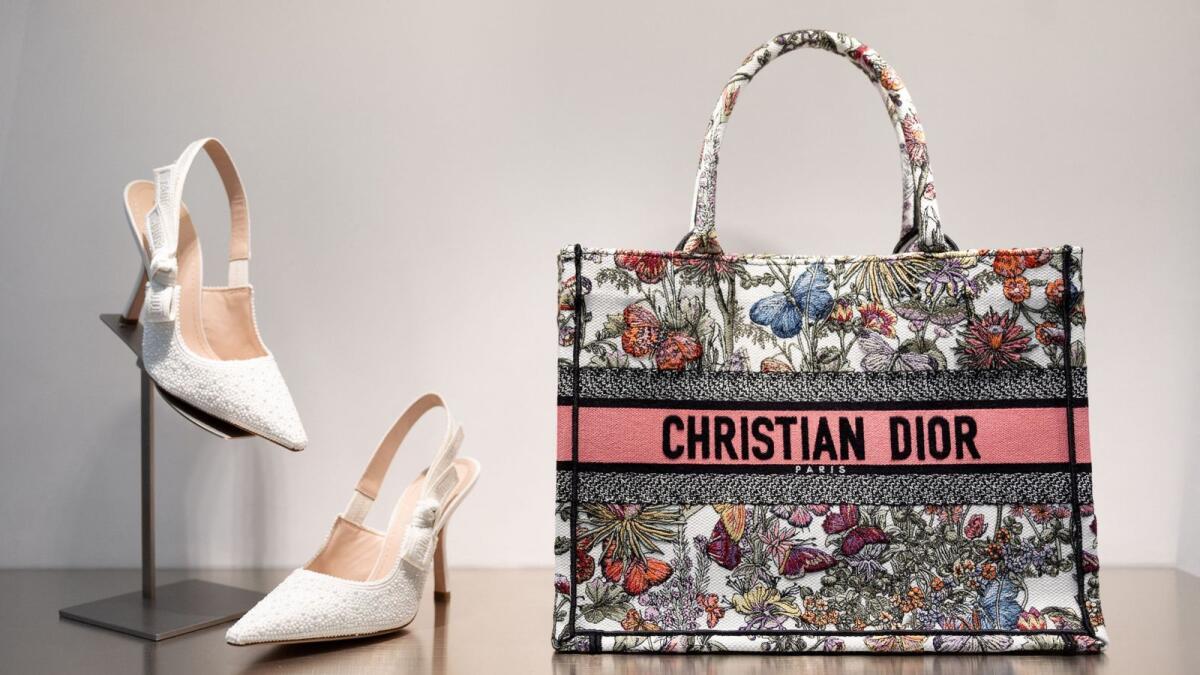
Dior, Armani Under Fire Over Worker Exploitation Court Seeks Tougher Checks On Luxury Suppliers
Last updated: Sun 7 Jul 2024, 11:53 AM
Luxury firms should beef up checks on suppliers to ensure they respect labour laws, according to Italy-wide proposals from Milan's court of justice following worker exploitation probes involving units of LVMH and Giorgio Armani.
The proposed scheme, which would not be legally binding, marks an attempt by magistrates in Italy's fashion capital to tackle what they have described in documents seen by Reuters as "a generalised manufacturing method" that put people's lives at risk to boost profit margins.
Milan prosecutors probed for a decade illegal working conditions in sectors such as logistics and cleaning services before focusing on the luxury sector, where Italy accounts for half the world's production.
Supply chain probes this year uncovered sweatshops near Milan where workers, often illegal immigrants, ate and slept, sometimes working through the night and during holidays to operate machines stripped of safety devices to increase output.
On Monday, a Milan court named a special commissioner to oversee a Milan-based unit of LVMH that produced Dior-branded handbags. In April, similar happened to a unit of Armani.
Fabio Roia, the president of Milan's court system, told Reuters in an interview the proposed scheme had been drawn up with input from court-appointed commissioners who helped companies address supply chain flaws in recent years.
"On Tuesday we sent the draft proposal to Milan's police chief. Then Italy's Chamber of Fashion and other associations as well as, eventually, every company in the sector will need to adopt it. We think we can make this happen before the summer break," he said.
The measures outline ways to carry out effective checks on suppliers.
"We've noticed companies don't invest enough in their control systems. It is, first and foremost, a problem of culture, like tax evasion," Roia said.
"Business owners unfortunately don't normally question why certain goods or services cost so little. They simply seize the chance to maximise profit. You'd think ultra-low prices would ring alarm bells. If someone offered me a Rolex watch costing 50 euros, I'd be wondering where it comes from."
Based on the latest probe, Milan prosecutors alleged that by having some staff work illegal 15-hour shifts, one Chinese-owned supplier could charge Dior as little as 53 euros for a handbag that retails at 2,600 euros.
In the previous probe, investigators said sub-contractors paid people 2-3 euros an hour for 10 hours a day to make bags that got sold to Armani suppliers for 93 euros, re-sold to Armani for 250 euros, and cost about 1,800 euros in shops, documents seen by Reuters showed.
LVMH has not replied to requests for comment, Armani said it has always sought to minimise abuses in its supply chain. Neither group is under investigation.
UNFAIR COMPETITION
"The main problem is obviously people being mistreated: applying labour laws, so health and safety, hours, pay. But there is also another huge problem: the unfair competition that pushes law-abiding firms off the market," Roia said.
"If we managed to eradicate labour exploitation, profits would diminish, but there could be legal competition among businesses."
Scandals about inhumane working conditions have plagued the fashion world in recent years, especially at factories in developing countries, but social media has increased the reputation risks for brands, prompting many to bring some production in-house and curb the number of sub-contractors.
"When we step in, business owners always say it's impossible to make checks on sub-contractors, but if that's true one could for example insert a clause in a contract saying that direct suppliers can't hand out the work further," Roia said.
Probes into the luxury supply chain highlighted in some cases the absence of a formal contract, while in others a company would act as a screen for the actual manufacturer, documents showed.
"We can only do so much, we have limited resources. But we've had an impact not only on the companies we worked with, but also the others ... given the huge reputation risks and the costs of what a court-appointed commissioner can demand," Roia said.
ALSO READ:
-
UK ban on overseas care workers bringing family members comes in force
-
Flown back and forgotten: Filipino migrants face tough homecoming
-
How this first-of-a-kind London exhibition is celebrating 40 years of Naomi Campbell

Legal Disclaimer:
MENAFN provides the
information “as is” without warranty of any kind. We do not accept
any responsibility or liability for the accuracy, content, images,
videos, licenses, completeness, legality, or reliability of the information
contained in this article. If you have any complaints or copyright
issues related to this article, kindly contact the provider above.


















Comments
No comment